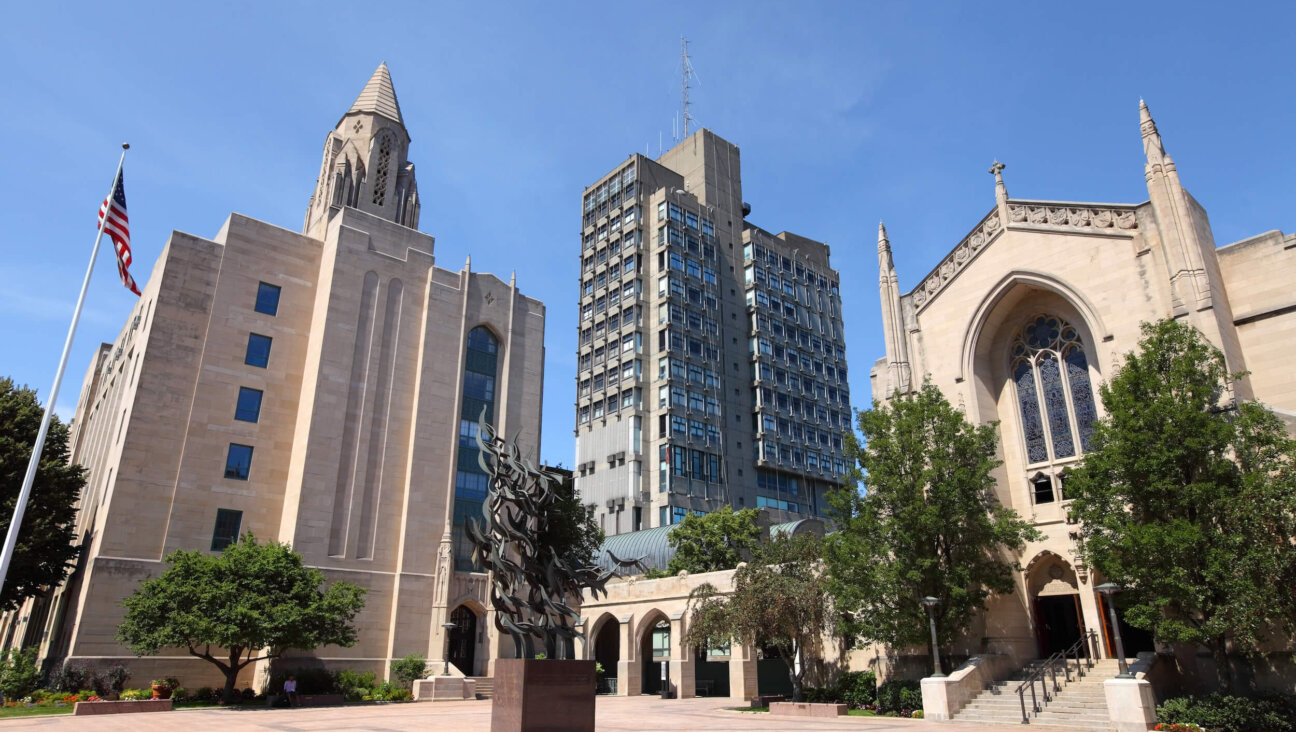Naftali Bennett is a historic Prime Minister. But not for the reasons you expect.

Image by getty images
In his “History of the Jews,” the historian Paul Johnson coined the phrase “Non-Jewish Jew” for any Jew who, in his words, “denied there was such a thing as a Jew at all.”
But it took Naftali Bennett and the Religious Zionist movement to trump the notion of the “Non-Jewish Jew” with that of racism posing as religion — what I dub: non-Jewish Judaism.
By historical coincidence, the year Johnson published his book was also the first full year of the Palestinian Intifada— and many of Israel’s Religious Zionists were in a violent frenzy. One of them, Rabbi Moshe Levinger, set the tone of much of what was to follow. Levinger was the “spiritual leader” of a gang of Israeli “settlers” in the occupied West Bank city of Hebron. In September 1988, Levinger fired at a group of Palestinians — killing one and seriously wounding another — as they stood outside a shoe store.
For that deadly shooting spree, Levinger served a mere three months in jail. And when he died in 2015, a rising Israeli politician made a point of hailing Levinger’s “love and unconditional dedication to the people of Israel” in a public statement.
The politician’s name? Naftali Bennett.
The following year, Bennett proved himself an exemplary Religionist Zionist by demonstrating a wild misunderstanding of the Hebrew Bible and post-exilic rabbinic Judaism. Speaking at an awards ceremony, Bennett — as noted at the time by Israeli journalist Gil Gertel — fantasized about building a Jews-only state that would incorporate most of occupied Palestine.
Bennett told his audience that an ancient “Jewish state” had bequeathed the world both monotheism and the Sabbath – ignoring the fact that Jewish tradition links monotheism to Abraham and the Sabbath to Moses, both of whom were dead by the time the ancient Israelites established any “state.”
Even worse, Bennett claimed that Jewish “sovereignty” was a precondition for anything of value in Jewish life, thus negating everything in religious Jewish history from the Mishnah through Maimonides. Probably no one but a Religious Zionist, like Bennett, would have dared to claim publicly that “when we [Jews] weren’t sovereigns, Judaism did not contribute to humanity.” And certainly, no one but a Religious Zionist would have escaped charges of antisemitism for denying 2000 years’ worth of Jewish life.
But Bennett got away with it. And he’s only a piece of the problem.
If Bennett’s Judaism is a crude manqué, the Judaism on offer from some rabbis of the Religious Zionist and ultra-Orthodox camps is just about as bad.
Many Americans who have been shocked by Bennett’s casual brutality don’t realize that he is a rather moderate figure among today’s Religious Zionists. “He’s not quite the wild-eyed settler extremist of caricature,” we’re assured by Oren Kessler, a former official of the warmongering Foundation for Defense of Democracies. By Kessler’s standards, this is true: a more characteristic voice of Religious Zionism is probably that of Col. Ofer Winter, who told Israeli troops about to invade Gaza in 2014 that “history has chosen us to spearhead the fight against the terrorist Gazan enemy who curses, vilifies and abominates Israel’s God.”
Such murderous fundamentalism reflects the views of far too many Religious Zionists. To them, given Bennett’s partnership with the secular centrist Yair Lapid, he is at best a mixed blessing: several leading Religious Zionist rabbis have attacked Bennett in the past, and it remains to be seen whether he will be fanatical enough for them.
And what of the ultra-Orthodox haredim? When Bennett gave an interview to the religious weekly Mishpacha last March, he was never once questioned about his dismissal of the rabbinic tradition or his contempt for Diaspora Jews — and certainly not about his reduction of Judaism to a violent real-estate swindle.
Anyone seeking the “historic moment” marked by Bennett’s ascendancy need look no further. Because what matters isn’t the kippah on the head of the new prime minister, it’s the failure of religious leaders to question whether it belongs there.
For more than 70 years, some Orthodox clergy have sighed over the fact that the Jewish State was led by secularists. Complaining that “nationalism” failed “the Jewish people,” Rabbi Yitzchok Lewin, speaking for Agudath Israel in 1965, insisted that genuine religious Jewry must “oppose all efforts to build a Jewish people without its true essence” and must “proclaim the absurdity of a Jewish people without Torah.”
But today, “a Jewish people without Torah” is exactly what Naftali Bennett offers in the name of religion.
And don’t blame it all on Bennett. At a time when rabbis can boast about handing out t’fillin to Israeli soldiers on their way to invade Gaza (and in the process to kill civilians), it seems to me that Jewish religious leadership has forgotten how to formulate a response to those who equate Judaism with Jewish supremacy.
The men who are supposed to represent Jewish tradition are squabbling over patronage or playing racist one-upmanship games.
That’s the real news about the installation of the first “religious” Prime Minister of Israel.
Michael Lesher is an author, poet and lawyer whose legal work is mostly dedicated to issues connected with domestic abuse and child sexual abuse. A memoir of his discovery of Orthodox Judaism as an adult — Turning Back: The Personal Journey of a “Born-Again” Jew — was published in 2020.

















